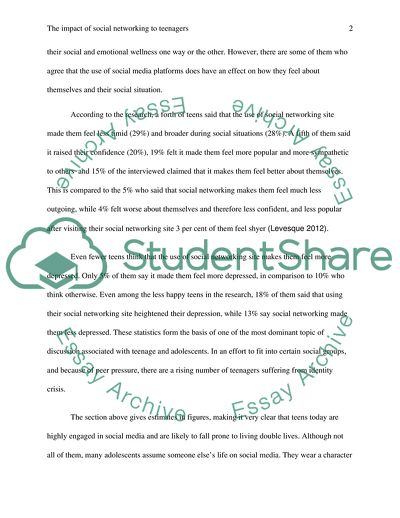Cite this document
(The Impact of Social Networking to Teenagers Assignment, n.d.)
The Impact of Social Networking to Teenagers Assignment. https://studentshare.org/sociology/1847590-the-impact-of-social-networking-to-teenager
The Impact of Social Networking to Teenagers Assignment. https://studentshare.org/sociology/1847590-the-impact-of-social-networking-to-teenager
(The Impact of Social Networking to Teenagers Assignment)
The Impact of Social Networking to Teenagers Assignment. https://studentshare.org/sociology/1847590-the-impact-of-social-networking-to-teenager.
The Impact of Social Networking to Teenagers Assignment. https://studentshare.org/sociology/1847590-the-impact-of-social-networking-to-teenager.
“The Impact of Social Networking to Teenagers Assignment”. https://studentshare.org/sociology/1847590-the-impact-of-social-networking-to-teenager.


